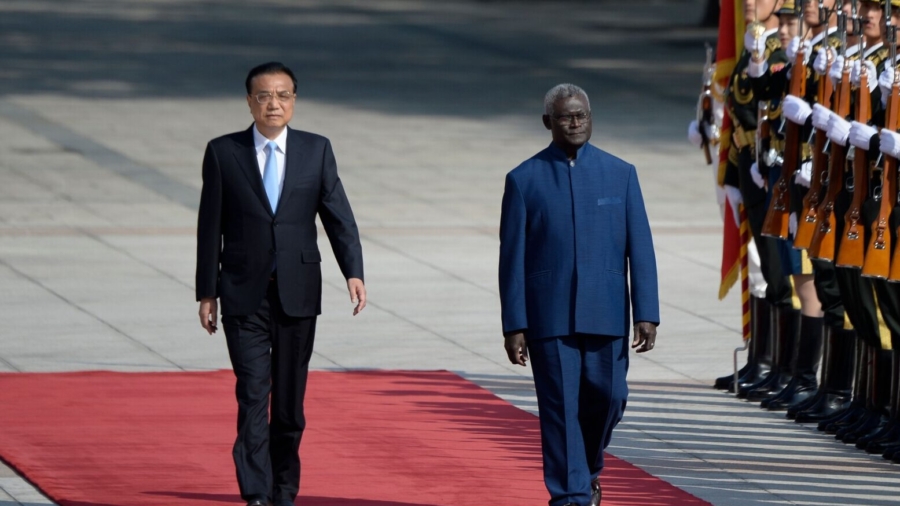The United States raised concern Tuesday over the “vague deals” signed between the Solomon Islands and China, citing the “unspecified nature” of the agreement.
Solomon Islands Prime Minister Manasseh Sogavare announced Wednesday that his government has formally signed the security pact with China based on “a sovereign decision” to broaden its security cooperation with more countries.
In his statement, Sogavare reiterated that the agreement with China would not adversely impact or undermine the peace and harmony of the region.
However, Washington said that the “unspecified nature” of the security treaty was alarming as it follows Beijing’s pattern of offering “shadowy” deals to countries.
“We are concerned by the lack of transparency and unspecified nature of this agreement, which follows a pattern of China offering shadowy, vague deals with little regional consultation in fishing, resource management, development assistance, and now security practices,” the White House said.
U.S. Indo-Pacific coordinator Kurt Campbell is due to touch down in the Solomon Islands in the coming days to speak with Sogavare on the matter.
The United States on Monday convened a meeting with officials of Japan, Australia, and New Zealand in Honolulu. According to the White House, the officials shared concerns about the Solomon–China security framework and its “serious risks” to a free and open Indo-Pacific.
Australia’s Foreign Minister Marise Payne said in a statement that Australia was “deeply disappointed” by the signing of the Solomon–China treaty, and that her government will seek “further clarity” on the terms of the agreement.

“We respect Solomon Islands’ right to make sovereign decisions about its national security. Our consistently stated view, including from the perspective of Australia’s national interests, remains that the Pacific family is best placed to meet the security needs of the region,” Payne said.
Australia’s Pacific Minister Zed Seselja visited Honiara last week and asked Solomon Islands leaders not to sign the pact.
Following the recent development, Australia’s Labor opposition party blamed the Morrison government for dropping the ball on engagement in the region.
Penny Wong, Labor’s foreign affairs spokesperson, said that under Prime Minister Scott Morrison the region was “less secure” and the risks to Australia were far greater.
“The government should have acted sooner. We live in a world where the strategic circumstances we face are riskier and more uncertain than in any time since the end of World War II,” she told the Australian Broadcasting Corporation (ABC) on April 20.
The deal would, in essence, allow the Chinese Communist Party—with the consent of the Solomons—to dispatch police, troops, weapons, and even naval ships to “protect the safety of Chinese personnel and major projects in the Solomon Islands.”
The location of the Solomon Islands is critical and was the site of extensive fighting during World War II because of its influence over sea lanes. It would expand Beijing’s reach beyond the South China Sea to within 1,700 kilometers (1,060 miles) of Australia’s northern city of Cairns.
Daniel Y. Teng and Reuters contributed to this report.
From The Epoch Times


